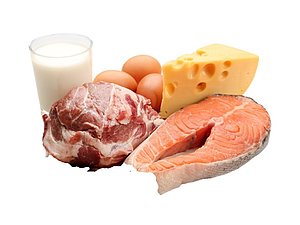Import of food
Event description

Introduction or import of food into the European Union is regulated in order to provide the EU consumers with safe quality food. Food imported from third countries by travellers for their personal needs are not subject to any special customs formalities. However, the introduction of food for personal needs can nevertheless be subject to prohibitions or restrictions at import if that is necessary for the protection of health of humans, animals or plants.
Food of non-animal origin
There are no special restrictions regarding the introduction of food of non-animal origin for personal use.
Food of animal origin
Due to a risk of transmission of animal diseases, the introduction of food of animal origin (meat, milk, meat and milk products, fish, eggs, honey etc.) for personal use of travellers is subject to special requirements laid down by Regulation (EC) No 206/2009. According to this regulation, the following food can be introduced into the territory of the EU without being subject to any veterinary formalities:
- meat and meat products and milk and milk products (other than powdered infant milk, infant food and special foods or special pet feed required for medical reasons) provided that they come from the Faeroe Islands, Greenland or Iceland and their weight does not exceed 10 kg per person;
- powdered infant milk, infant food, special foods and special pet food required for medical reasons provided that they come from the Faeroe Islands, Greenland or Iceland and the product does not require refrigeration before consumption, it is a packaged proprietary brand product intended for direct sale to the final consumer, the packaging is unbroken (unless in current use) and their weight does not exceed 10 kg per person;
- powdered infant milk, infant food, special foods and special pet food required for medical reasons provided that they come from other countries (other than the Faeroe Islands, Greenland or Iceland), the product does not require refrigeration before consumption, it is a packaged proprietary brand product intended for direct sale to the final consumer, the packaging is unbroken (unless in current use) and their weight does not exceed 2 kg per person;
- fishery products or one fish whose weight exceeds 20 kg (including fresh, dried, cooked, cured or smoked fish and certain shellfish, such as prawns, lobsters, dead mussels and dead oysters). Fresh fish must be eviscerated. These restrictions do not apply to fishery products which come from the Faroe Islands or Iceland;
- other animal products such as honey, live mussels, live oysters and snails, for personal use, provided that they come from the Faeroe Islands, Greenland or Iceland and their combined weight does not exceed 10 kg per person;
- other animal products such as honey, live mussels, live oysters and snails, for personal use, provided that they come from other countries (other than the Faeroe Islands, Greenland or Iceland) and their combined weight does not exceed 2 kg per person.
Larger quantities of animal products can be introduced in the European Union only if they are subject to the prescribed veterinary formalities at import.
Certain composite products which may contain processed plant products and processed animal products (but not meat products) are not subject to veterinary controls, as well. Such products are bread, cakes, biscuits, chocolate and confectionery (including sweets), not mixed or filled with meat product, food supplements packaged for the final consumer, meat extracts and meat concentrates, olives stuffed with fish, pasta and noodles not mixed or filled with meat product, soup stocks and flavourings packaged for the final consumer, any other food product not containing any fresh or processed meat or diary and with less than 50% of processed egg or fishery products.
Restrictions provided by Regulation No 206/2009 do not apply to personal consignments of animal products which come from Andorra, Liechtenstein, Norway, San Marino and Switzerland and to consignments of fishery products from the Faeroe Islands and Iceland.

Did you know?
Certain fruits and vegetables from third countries can be subject to phytosanitary inspections at import into the European Union. Moreover, a permit provided by CITES Convention may be required at introduction of certain food products containing ingredients from protected animal or plant species into the EU.



